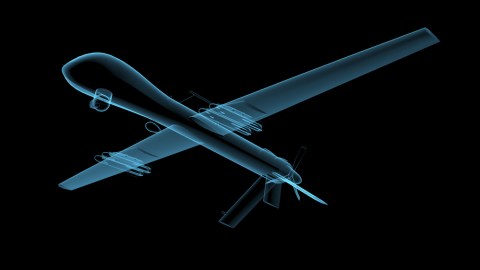How We Wage War With Cameras

There are cameras taking part in wars all over the place. The most obvious sense is to be found in the idea of news coverage. We saw in the war in Iraq how news coverage was framed by certain requirements of embedded reporting, so what we could know of the war depended on the angle of the camera, depended on the position of the camera person, where cameras were allowed to go and where they weren’t allowed to go, so the perspective of the camera has everything to do with the kinds of perspectives that the general public nationally and internationally form about what is happening in a war, whether a war is being conducted in a legitimate way, whether a war is being conducted for legitimate reasons, but let’s remember that there are also cameras on weapons.
Most weapons have cameras built in at this point. Cameras help to focus on targets. Cameras help to minimize collateral damage and very often without a camera a missile cannot fire. Certainly without a camera a drone can’t function which means that the very ways in which we wage war are determined in part by how cameras work and whether they work at all.
So there are kind of two issues, what is happening with the war and is the war being conducted in a way that is legitimate and then I suppose actually a kind of corollary to the last issue is, is the war itself legitimate? Cameras are involved in all of those questions. They’re part of war waging and they’re also part of the way in which a general population assesses what is happening and whether it’s right and I think that is one reason why governments seek to control what is actually shown and why certainly under the Bush regime and continued, unfortunately, under the Obama regime there were all kinds of limitations imposed on war reporting, so we weren’t always sure what was happening and we weren’t always sure whether what was happening was right.
In Their Own Words is recorded in Big Think’s studio.
Image courtesy fo Shutterstock





